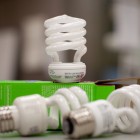Background
The Texas State Energy Conservation Office (SECO) works with Texas consumers, businesses, educators and local governments to reduce energy costs and maximize efficiency. SECO provides information on various types of renewable and non-renewable resources used in Texas and tips on conservation programs for businesses, schools and consumers. SECO is overseen by the Texas Comptroller.
SECO is involved with a number of Texas energy programs, including the LoanSTAR Revolving Loan Program, designed to help taxpayers save money by providing loans for energy-efficient projects to state agencies, higher education, local governments and hospitals. The Texas Building Energy Codes Program provides resources and training to building professionals and the general public on the latest energy codes and standards. The Alternative Fuels Program promotes clean energy and better air quality by supporting public and private partnerships that deploy clean-burning alternative fuel vehicles (AFVs) and build fueling infrastructure. Information about other state energy programs is listed here.
Despite SECO’s efforts to reduce energy consumption across the state, Texas ranked 32nd in the American Council for an Energy-Efficient Economy’s national efficiency rankings . This is a significant decline from its position at 23rd the previous year. The rankings are based on six categories, including transportation policies, building energy codes and appliance efficiency standards.
Texas efficiency requirements lag significantly behind California, the highest ranking state for the last four years. Federal energy efficiency standards apply to large appliances such as refrigerators and washing-machines, but states must provide standards for other appliances not on the federal list. Texas has no state-wide energy standards for many of these other appliances, including televisions and hot tubs. In comparison, both California and Massachusetts have set standards for these types of appliances.
